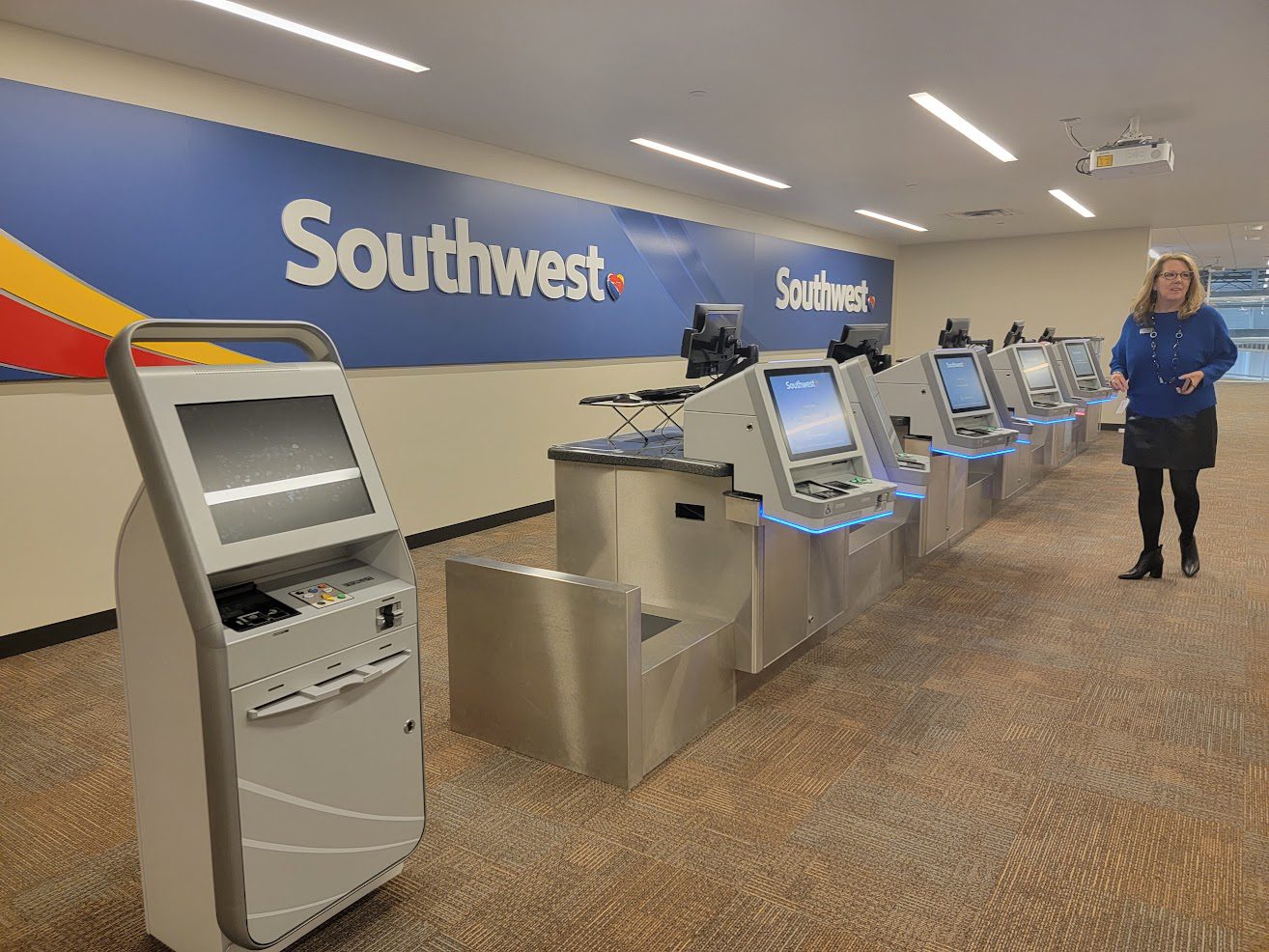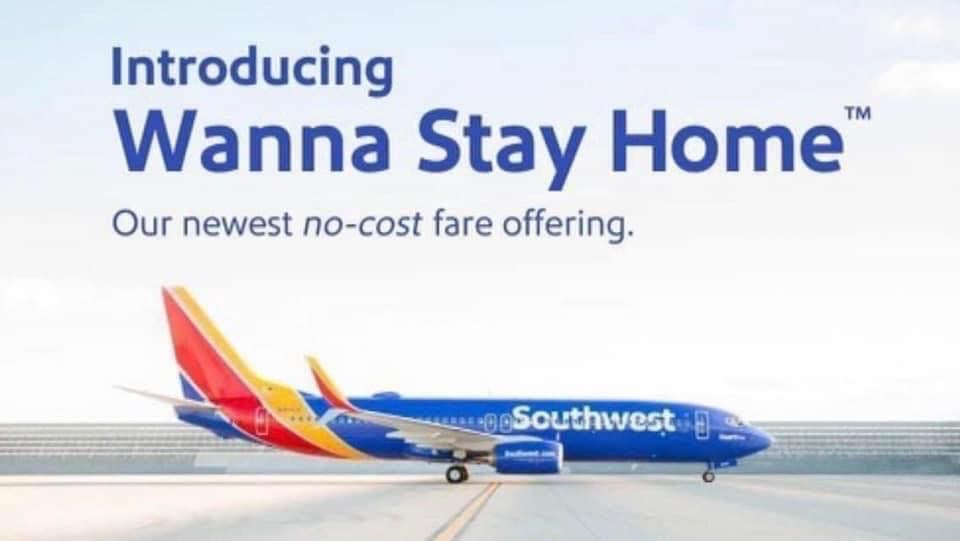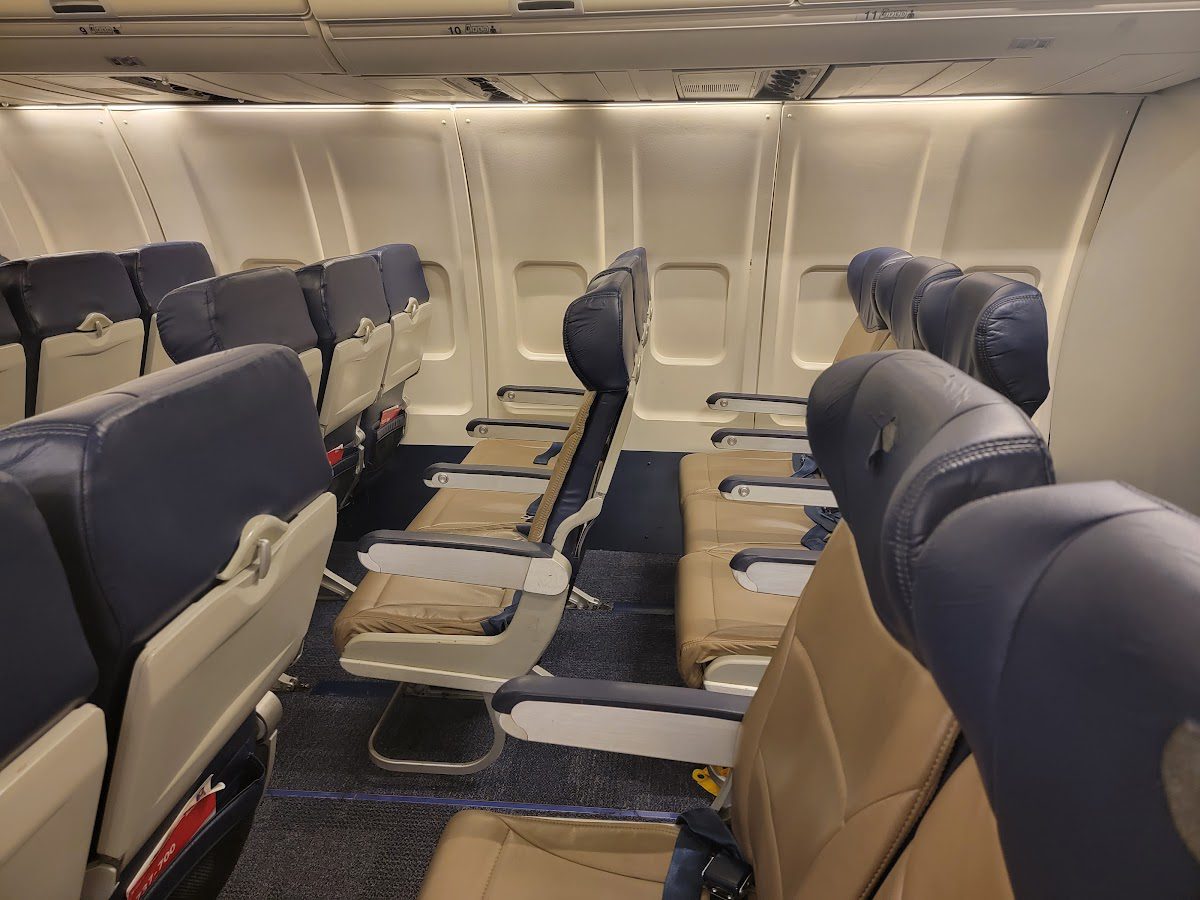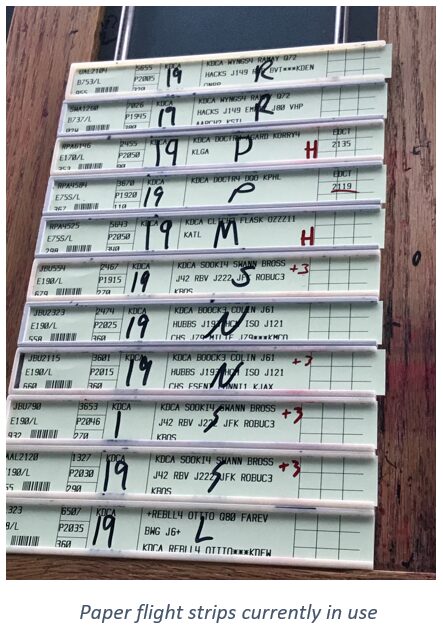The Department of Transportation has settled with Southwest Airlines over its meltdown last Christmas, with the airline agreeing to a $140 million penalty (but not really). It took DOT a year to deal with this. Customers who were inconvenienced in the mess do not get anything from this. And Southwest Airlines doesn’t deserve it in any case.
Southwest’s Christmas 2022 Meltdown Was Unprecedented In Scale
When Southwest cancelled nearly 17,000 flights a year ago it cost them nearly $1 billion.
- While it began with weather, the airline melted down, losing track of crew and without systems that allowed them to rebuild their schedule.
- As the operation got away from them, they were forced to rebuild manually – too big a task to recover more than half of their operation in a day.
- Customers were refunded. They were reimbursed for out of pocket expenses, even where they purchased flights on other airlines. And passengers who merely suffered delays were given 25,000 Rapid Rewards points.
The current line for cancellations/rescheduling at Southwest Airlines counter at DIA. 😮 pic.twitter.com/wtrzu6qYcy
— Jeremiah Bellile (@miahbellile) December 26, 2022
@SouthwestAir I have missed Christmas with my family after several delays and cancellations and I am now stranded at the Kansas City airport. Almost all of the flights for southwest have been canceled with hardly any explanation or anyone at the gates. This is baggage claim pic.twitter.com/Gzhtfca5Hy
— Caroline “Flynn” (@ceaflynn) December 26, 2022
That’s a screenshot of over 15 HOURS on hold with crew scheduling! Flight crews sleeping in airports because of cancelled flights was common. pic.twitter.com/pNtjHMSYk6
— Paul St.Onge (@stpaul77) December 26, 2022
Did Southwest Actually Do Anything Illegal To Warrant A Fine?
Southwest didn’t claim the meltdown was weather-related, even it began with snow in Denver and past legal precedent might have let them skirt legal responsibility. They didn’t just refund tickets. They came out of pocket in a real way for customers, and for the most part they did so promptly.
However when 2 million passengers are displaced, there are going to be customer service lapses. Mainly, though, it was a massive business failure – insufficient planning for long tail events, insufficient investment in technology as the airline grew into a domestic behemoth, and insufficient experience among staff after experiencing significant turnover during the pandemic. But it wasn’t really illegal as such.
The Department of Transportation, though, says that Southwest:
- didn’t provide sufficient customer service, since passengers couldn’t get through to the airline (no airline, ever, has staffed sufficiently to handle phones for what happened).
- didn’t provide prompt enough flight updates
- didn’t provide refunds promptly in thousands of cases (there were perhaps 1/10th to 1/5th of a percent of processing outliers, even as Southwest went far beyond its legal obligations).

The Fine Is Really $35 Million, Not $140 Million
Of this $140 million, Southwest actually only has to pay $35 million to the government.
- $35 million fine
- $33 million credit for Rapid Rewards points they gave customers 11 months ago
- $72 million credit for setting up a $90 million fund for compensating future inconvenienced passengers

DOT says the fine is 30 times larger than any previous consumer action they’ve taken (they’ve historically been toothless) and is on top of refunds and reimbursements already provided in the immediate aftermath of the event.
And when you combine what Southwest did for passengers and what DOT is requiring, “Southwest will pay over $750 million for the holiday meltdown — with the vast majority going to passengers for refunds, reimbursements, rapid rewards, or future compensation” since what Southwest already did dwarfs this action.
The Government Is Using A Settlement To Impose Extra-Legal Regulation
With this settlement, the Department of Transportation extracts a PR win, and expands its rulemaking authority unilaterally. According to DOT Secretary Buttigieg, airlines should expect government to extract a tax when customers get mad at them – rather than following a rule of law process (emphasis mine):
Today’s action sets a new precedent and sends a clear message: if airlines fail their passengers, we will use the full extent of our authority to hold them accountable. Taking care of passengers is not just the right thing to do — it’s required, and this penalty should put all airlines on notice to take every step possible to ensure that a meltdown like this never happens again.

What DOT is really getting here is Southwest’s agreement that it will provide $75 travel vouchers in the future when passengers arrive three hours or more late due to a controllable delay or cancellation using this $90 million commitment. That’s something no other airline is formally committed to, but it’s airline scrip requiring passengers to buy future travel (basically, customer service recovery and something customers frequently get when they complain anyway and sometimes even proactively get already).
Southwest Airlines is promising that they will compensate customers in the future less than they did on their own a year ago.
This may be meaningful as a precedent, but it’s regulation by settlement instead of the usual notice and comment process and isn’t anything required by statute. That’s not really a ‘rule of law’ approach to regulation, and is troubling.
Moreover, it’s bizarre because no airline I’m aware of has ever gone farther above and beyond to make up to customers after what happened as Southwest has done. And usually when these fines are imposed, they get credit for payments actually provided to customers and not just the frequent flyer point top off (roughly $300+ per passenger) that was provided.
DOT Needs To Focus On Cleaning Up Its Own House
It is not as though the Department of Transportation penalizes itself, compensates customers, or even meaningfully fixes problems when they cause the entire air travel system to melt down.
The FAA’s Air Traffic Organization, inside of DOT, forced a nationwide ground stop just two weeks after Southwest recovered, forcing cancellation of flights on all airlines rather than just one.
New York TRACON has been staffed only at around 60%, and as a result the government literally asked airlines to reduce their schedules – to proactively cancel flights they were going to operate. The FAA doesn’t pay staffers enough to work in New York, and takes a year to approve transfers. They’ve pulled back from remote towers which are location-independent.

Air traffic control failures led to 46 close calls in a month, and 300 near collisions in a year. They’ve failed at technology investments for twenty years and continue to use paper flight strips.

While the Department of Transportation will take a victory lap over a trumped up $140 million figure, a scalp of sorts, they haven’t really done much to benefit customers and they continue to distract from the very real things they’re responsible for in air travel that are dragging down the entire country’s travel.


This article is very informative , but I have a question for Gary : Gary , wouldn’t Southwest have better served itself by Never taking on the impossible challenge of holiday travel ? Just do a minimum schedule , knowing that many employees will be sick or unable .
Baloney. Southwest nickel and dimed its operations for years in the name of “cost-efficiency” and it blew up in their face. They deserve all the punishment they get.
There are only so many ways for regulators to get an irresponsible operator’s attention. Outsize fines are one of them. I support DOT completely here.
In the future, the maximum compensation you will receive is $75. That is worse for most people.
That is like free health care from the NHS in UK. You cannot get a Covid vaccine unless you are 65 years old. In British Columbia, you cannot get Paxlovid medicine unless you are 70, if you are vaccinated.
It would have been better if the fine were smaller, like $40M but donated to distressed passengers of all airports
Total & Tom : Glad others have a similar memory of what occurred. Southwest was aware of their ancient system. And as I recall did not own the problem until they could not get things back on track days later. Accountability can be expensive.
@Tom – what outsized fine? $35 million against a loss of $1 billion from the event, not counting the investments they’ve made since. That’s immaterial.
@Alert – they were genuinely taken by surprise last Christmas. Things began to melt down in Denver. They didn’t have the staff there with the snowstorm, they didn’t have the equipment there. And a confluence of events all came together in a very long tail event no one had predicted. So they didn’t have the foresight to scale back in advance.
Here’s a start of many questions:
1. Is this penalty offset against Covid subsidies? Did WN get covid subsidies? Why or why not?
2. How will this WN penalty be balanced against a B6-WN merger?
3. How does this penalty affect private travel insurance policies?
4. Which DOT civil servants got promotions from this WN penalty?
5. Which DOJ lawyers will run for political office based on this WN penalty?
6. Is this WN penalty different than the ticket agreement legal language when a passenger buys a WN ticket?
7. Will this WN penalty encourage WN to become a “Premium” airline to compete with “Premium Airline” DL?
More government regulation and penalties will equal more misery. The history of government substantiates this. But the elites in government always live well.
Gary,
You really didn’t place enough emphasis on how long it took for SW to update its systems. And how much that delay increased their bottom line.
Don’t disagree that DOT failed its own system. But for them to make changes, it takes virtual/actual act of Congress. SW could have fixed its own mess on its own.
@Alan – FAA NextGen has been underway for *over 15 years*
Southwest’s failure to invest in better systems is a business failure, but I’m not sure it’s an illegal one.
If the DOT really wanted to get Southwest’s attention, it would have insisted on a one day STAND DOWN. No fights, No revenue, No movement of jets.
All employees get in a huddle and discuss what went wrong and what will be done to prevent it from happening in the future.
That would have gotten the attention of those in the C-Suite who spend too much time calculating the “strike point” of their stock options and not enough time with their eye on the ball.
“Southwest Airlines is promising that they will compensate customers in the future less than they did on their own a year ago.”
The crucial “improvement” is that the government, not Southwest, will get credit for the compensation customers receive. Mandates supplant flexible generosity.
I’ll bet that most of the passengers caught up in this event would have really rather just flown as paid for and scheduled. I wonder if any of them came out ahead or were even made whole. I don’t feel one bit sorry for Southwest and would have been fine with a fine on the order of how much the upfront cost was to Southwest, essentially doubling the cost. The extra fine could be returned to customers who had collateral damage.
Simple : Minimum number of flights because employees will not be available . Don’t overdo anything . Don’t bite off more than you can chew . Don’t oversell . Sell only a few tickets on a few flights . Then nothing will come back to bite you .
@jns: A friend of mine was reimbursed more than 2x incurred costs (5 figures!), so yes, some people came out ahead. But it wasn’t an easy process. I believe the people who waited to make their claims had it easier, as Southwest employees got familiar with the process and as management got more accommodating of claims.
@nsx on Flyer Talk, was the outcome good enough that your friend would do it again without being forced into the situation? I myself will defend my position in such situations but I really don’t care to do it because I don’t like arguing that much. When Covid-19 shut down a lot of air travel, I had tickets with three airlines. I waited quite a while to argue for cash refunds, which was in my favor, but I really never came out ahead on it. I just recovered money that was put up for flights that weren’t going to happen. One ticket I allowed to be a credit that was used later. I wish that all credit had a much longer term of use, such as five years, because that may be how long it would take for me to find a deal that I wanted to take advantage of.
Typical GOP big guvmint nonsense. You state there were “perhaps” 1/10th of outliers” but you’re coming at this from a place of hyperbole and not of facts. Big business screws over customers regularly. Good on the government for pushing back.
It seems as if the author has become entirely used to inefficiency and thinks it’s perfectly OK. Absent other remedies, WN should have been dealt with in exactly such a punitive fashion for failing to be prepared for an entirely foreseeable event.
@jns: I don’t know but I suspect yes, if there were a certain profit of thousands of dollars. Uncertainty of compensation amplified the stress, so providing certainly creates a situation more like denied boarding, where you are compensated on the spot. And we know many people enjoy voluntary denied boarding compensation.
Gary… what you are missing here is that the airline industry is not an isolated free market. The people of the United States own the skies. They are the landlords. They pay for ALL the infrastructure to support it. The airlines are merely tenants. All DOT regulation is based on this basic tenant. Your claim that what Southwest Airlines did was not “illegal” is not accurate. Indeed, if it was not illegal, Southwest would not have settled. Apply some common sense here. It is understandable and true that both the airlines and the FAA have struggled to ramp up staff after COVID. But the airlines have complete control over producing a flight schedule for which they do not have the staff to support. That is 100% within their control and they should be held 100% responsible for any and all outcomes. The FAA does not have that same luxury. That is why they asked for airlines to reduce flights in some areas – they do not have the authority to force it. A new digital air traffic control system has been under development for years but has not become a reality because it continues to not be fully funded by Congress. This is not the fault of the FAA. This is the fault of Congress.
The primary causes of the issues in the airline industry today are directly linked to the absence of any substantial new regulations in the past 25 years. Regardless of your own personal political views, please peddle these Republican talking points elsewhere.
Why does Southwest’s back office failure have to be illegal to be punished? Southwest has known for at least 5 years that they could have a system meltdown of this magnitude. That they refunded customers is besides the point. Southwest ruined people’s holidays and vacations! Wasting passengers time with futile trips to nowhere. Leaving passengers anywhere but their destination and refunding their fares is morally and ethically wrong. They completely failed on their part of the contract, transportation from point A to point B. I personally feel the fines should have been bigger. Southwest has been fined before for aircraft maintenance issues. That is my biggest worry with airlines not doing things that I cannot see. What else is the airline not doing that may affect me and my safety?
Blaming the FAA for ATC is whataboutism and a complete failure on your part. It was not linked to the Southwest debacle at all.